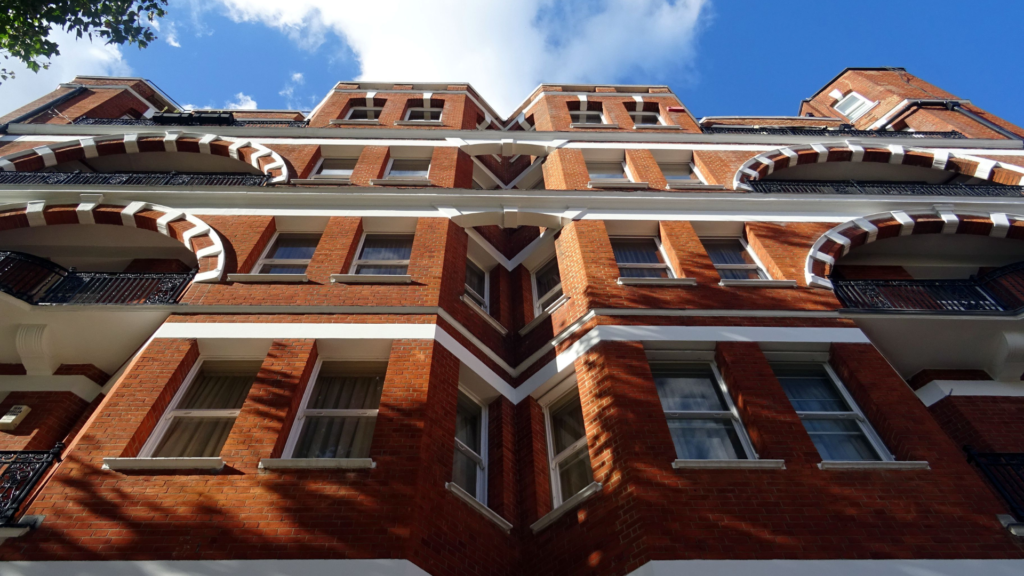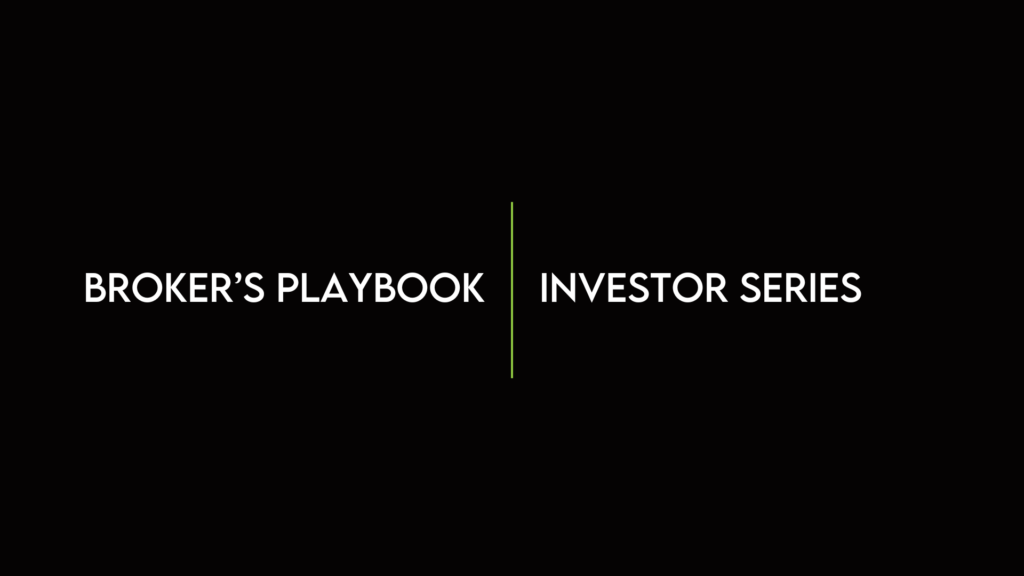Welcome to Broker’s Playbook! This episode features a thought-provoking discussion with Eric Kuzuian, co-founder of Austin Birch. Host Simeon Papailias engages with Eric to explore the current trends and strategies in real estate. This episode offers valuable knowledge for those looking to understand the keys to success in the field. Tune in to hear insights from a seasoned industry expert on the podcast that delves into the core of real estate dynamics.
Simeon Papailias: What is up Broker’s Playbook nation, this is Simeon Papailias. And once again I have a very exciting guest. A lot of you may have heard of a small company called Austin Birch. They are a huge company and they serve the needs of developers in the Greater Toronto Area. And what they do is they have a very different culture, and that really gets relayed onto the industry professionals that work in the pre construction vertical. And I’m here with. Eric Kuzuian and the co-founder, and he’s going to explain to us a little bit about the story and how they created both that culture and how they continue to behave and act differently in a market that’s heavily saturated right now. Stay tuned. Welcome everyone to Broker’s Playbook. I am with Eric Kuzuian, co-founder of Austin Birch. Eric, welcome to the show, my friend. Thank you.
Eric Kuzuian: Sir. How are you doing?
Simeon Papailias: I’m excited to have you here today and to be here. And I’m doing well. I have a full belly. Okay.
Eric Kuzuian: We had lunch, right?
Simeon Papailias: That’s right. We just we just enjoyed some delicious Portuguese chicken. Yeah, right. Downtown Toronto, where we are right now. And we had a little talk. Of course, we have our own business to discuss around deals and projects, etcetera. But we had a little talk about this very podcast and kind of strategically thinking where to go with it. You are a different guy. You’re just and this is a good thing. I don’t mean different. I mean a great way. Um, you’re you’re very outspoken in a certain way. Maybe we share some of that. I don’t like to really hold back or sugarcoat things. Definitely do not. And that’s kind of the flavor that I want to bring. To this to this pod right now. I want everybody to understand a little bit about your story and maybe how you’ve gotten here and what makes you this way. Why don’t you start? Just give us the Eric Kuzian story right first.
Eric Kuzuian: How old? Notes.
Simeon Papailias: Coles notes. And your relationship with Jamie, your co-founder. And how exactly you guys founded Austin Burch and arguably. The craziest year in our lifetime 2020.
Eric Kuzuian: Yeah, yeah.
Simeon Papailias: So there’s a lot to unpack there. Start anywhere, my man.
Eric Kuzuian: Yes. I mean, you know, much like most people just started, you know, doing real estate as a realtor and, you know, not really knowing where I wanted to sell, what I wanted to sell, which is, I think, pretty common for most people when they get into the real estate industry. So I kind of associated myself with this, you know, brokerage, where it was very much a family run small brokerage. And I like the culture I like. I always kind of resonated to that coming from like a family business background. And so, you know, that kind of culture was always important to me. I wasn’t never and probably will never be a big corporate kind of guy. Yeah. So, you know, that was really important to me. Started doing a lot of business. Downtown opportunities presented itself downtown in King West, became part of a brokerage there for many years, grew that and part of that brokerage, which was PSR, um, you know, we enjoyed the new sales side of things. It was something that I kind of gravitated to, enjoyed the marketing side of it, how to position projects.
Simeon Papailias: And you started in the business almost 20 years ago?
Eric Kuzuian: Yeah, almost 20 years ago.
Simeon Papailias: Exactly. So you’ve been part of that king, the rise of King West, the rise of West Toronto. So you were part of that scene?
Eric Kuzuian: Yes, very much so. We were inundated. It was it was it was a scene. Yeah. It was around us every day. It was a young brokerage that was, you know, took some time to, I guess, make a bit of noise. But it started growing organically. We were never, you know, again. Part of that corporate, uh, positioning or approach was we weren’t really looking to grab agents or market for more agents. It just all happened pretty authentic and organically. And and then we started, you know, obviously doing sales for developers and that started growing. And around 2017, I realized that I wasn’t enjoying the brokerage business a lot. It wasn’t for me, you know, and I really enjoyed the new sales and marketing side of the business. So there was an opportunity for me to exit out of that company, which we did in 2018. I thought I’d take a year off or so. So it was it was a pretty fun time where I never experienced that. I actually went away with my wife and didn’t have an email that I had to answer to because I had no company anymore. So it was it was it was liberating. And it was very, very liberating. And so I thought I’d enjoy that. And Jamie, who was a partner with one of the offices back in our previous company, decided to come with me and we wanted to kind of decide what we were going to do. And we had all these other ideas with international brands and all that kind of stuff and the real estate industry. So we traveled, we traveled, we looked at different markets because we were convinced and knowing so that, you know, Toronto was going to get to 1500, a foot was going to get to 1800 foot, was going to get to 2000 a foot. So how are these other global markets facilitating those type of sales at those type of prices?
Simeon Papailias: So you spent both the time and money to actually put your boots on the ground in other global cities to do your market research, correct?
Eric Kuzuian: Correct. Because, you know.
Simeon Papailias: As I said, you’re a different guy.
Eric Kuzuian: Yeah, we’ve had a great run. We know that. Obviously, you know, factoring in the last year is not evident. But you know, Toronto is obviously seen a crazy trajectory in terms of growth and and units being absorbed. And what we realized when we traveled and we looked at everywhere in the world is there’s really no other place that was doing it. So like, like Toronto was. So when we were talking to creative agencies from, you know, our idea was, let’s stop staying so local. We have such a robust pre-con market that we should be looking at creative agencies all around the world. We should be looking at architects from around the world. We should be looking at PR agencies or interior design companies. So to just offer a different level of service to our clients here. And when we started looking at all that stuff, everybody was just blown away by the numbers that Toronto was doing. So we realized that we are definitely singular in the amount of transactions that we were doing at the time. So understanding now realistic absorption cycles, which we are now seeing in the market, was something that we were very interested to make sure we brought back as as good, intelligent analytics to our clients.
Simeon Papailias: Well, I think what 2023 showed the world is that nobody and I mean nobody and nothing can escape global economics. Yeah, of course. So you can have the absolute biggest demand supply delta on the planet, which Toronto, Canada still enjoys. Right. We have. Staggering supply demand issues that have not been resolved. The reason the market has listings is because nobody can be approved to get a mortgage to actually get a deal, whereas the global economy effect comes in. So I just want everybody to understand that what you just described is still very much right here, right now. And it’s being exasperated even further because the current market conditions aren’t allowing developers and builders to actually move forward on projects. So so it’s going to the minute that this pressure, this economic pressure gets relief. Correct. We’re going to be straight back into a world of hurt for our buyers. Affordability. Affordability is not getting better.
Eric Kuzuian: Yeah. No I mean we’ve seen that all the time right. When when await because I mean I’ve been doing this for a while. When await kind of went on a slow, you know and and Canada didn’t know if we were going to follow and we didn’t really follow the US. But there was that 4 or 5 month lag where everything slowed down. And I remember at the time we were doing fashion house and in King West, and it was like 299 was going to be the number in terms of the SF or 399 was the SF, I can’t remember. It’s been such a long time that let’s do we have to really shake it up to move units. And as soon as we thought of that idea, boom, the market had come back anyway. Like it was so, so every time. Toronto historically and I’m talking when I say historically the last 1015 years has seen a slowdown. Same with 2017 with the HST. And it just shot right back up quickly as opposed to yeah. So to your point, yes. As soon as that flicker, that consumer confidence or that mentality and psychology of like, no, I want to get back into the market. It’s going to it’s going to the trajectory.
Simeon Papailias: And just to expand a little bit on that. Oh, wait, was exactly it was a six month lull. It was my first year in business. I got licensed in the beginning of zero seven. I bought my home pre-construction home in Oakville during that six months. Right. Because I closed in 2010, right. Because everybody was so nervous, like everybody thought, it’s going to be the US. Yeah, yeah, yeah, it’s going to go down. I bought a home in Bronte Creek in Oakville for $499,000, with a $50,000 decor package to boot. Right. I sold it five years later for a million. Yeah. Lottery ticket. Yeah, that’s a lottery ticket. And that’s. And I’m speaking to that because this market right now has significant opportunity. Right. Tremendous opportunity. Yeah. And I want to I want you to go back to the to the story we were speaking. But I do want to come back to how an agent, if it’s one thing that you give well is a specific. Insight as to how to look at things. I want you to. Yeah, I’ll.
Eric Kuzuian: Definitely touch on.
Simeon Papailias: That. Definitely depends. Yeah. So so going back to your global insight, you and Jamie come back.
Eric Kuzuian: We come back we we, you know we some opportunities presented itself that we couldn’t turn down. Yeah some great projects and we you know we said well you know we this is the route we were going to go. So if these projects are already you’re.
Simeon Papailias: Talking becoming a listing broker for a development.
Eric Kuzuian: Yeah. Pretty much basically running the sales and marketing for a developer specifically. And we made a decision that that’s all we’re going to do. We don’t want to be in the brokerage business. We want to just focus again, specialize in what we enjoy the most. That is part of the culture, part of the culture. Make sure you’re doing what you enjoy and what you’re real about. And that’s what we did. We were blessed enough to bring our new sales team with us from our previous company, majority of them, and we were able to start Austin Birch and Funny Story with Austin Birch. I’ll tell you quickly as we’re doing our travels, we did meet a great these creative agencies, and there was this great creative agency out of New York that we loved, and we hired them to to to do the Austin Birch brand. And it wasn’t a brand yet in terms of the name. And, you know, we hired them. They did all these surveys and they did all these tests and this and that, and they came to us with this very detailed marketing book that said, this is what we think the name should be. And we joked with them during the process and we said, well, you know, Jamie lives on Austin Crescent, I live on Birch Avenue. And they came. Come on. Yeah, yeah, man, I’m telling you, they they looked at us and that’s what I love the real and Conway out of New York, by the way. Give them a shout out because they’re great people. They were real enough to say, we’ve done all this study and research and survey, and everybody likes just your street names. So forget this crap that we showed you that we can do. This is what resonated the most with people. So that’s how awesome Birch kind of became. Austin Birch.
Simeon Papailias: That is incredible. I had no idea. Yeah, yeah yeah, yeah.
Eric Kuzuian: We weren’t just picking the whitest names possible. It was just we I was so annoyed that people can’t say Kuzian. And so I was like, I need, I need, I need two white names. No, that’s not.
Simeon Papailias: What we’re doing. Try Papailias. Yeah. For anybody out there, give it a shot. Yeah.
Eric Kuzuian: No, no, no.
Simeon Papailias: Austin Birch really has a very like. And I’m going to have I’m going to make sure that our, our editors bring the Austin Birch logo and brand into the show. Um, you have such a a cool feel. Write the name Austin Birch matches the way it looks. Yeah, it really does. Yeah. And I love that. And it’s fresh and it’s modern. What is it when you were building this? Because this is now a different vertical to all our brothers and sisters out there looking to start a brand, because branding is important. Tell me a little bit about what attracted you to the specific creative agency or how did you pick a creative agency?
Eric Kuzuian: Yeah, well, two things. I mean, like, you know, there’s there’s where I the funny thing is in between, because the business came calling so quickly or our clients came calling so quickly, we didn’t even have a chance to create the brand. Right. So so it just became cousin got it right. And we were adamant about not having it. When I say we me especially because, you know, a lot of people have used their names in the past, but I have a different feel for that. Right? I didn’t want I had that when I was kind of building my first resale real estate team. Right. It would be like, well, it’s Eric, then why am I dealing with one of your junior agents? Right. And I always found that always difficult to to empower my agents or empower my staff. If the brand is my.
Simeon Papailias: Name, everybody has to always be under you. Correct. That’s the wrong way to build. And it wasn’t.
Eric Kuzuian: Part of our culture. So we were we. That was just a holding place. So we we knew that it was never going to just stay as cuisine because, you know, that’s not what we stood for. And that wasn’t of interest. So this creative agency out in New York, they just basically had that professional appeal to it. But they had beautiful aesthetics and design and more of the symmetry of how the brand, again, is not just a logo, but it really transcends to what your values and what your.
Simeon Papailias: So you found your own cool factor inside the professional guidelines that they had. Yeah pretty much.
Eric Kuzuian: Yeah. I mean there’s, there’s, there’s a ton of great creative agencies. This one also again it’s the personality of Santiago who’s the who’s who’s the you know, the main principle behind Conway. We got along with him. We enjoyed his personality, which again, you know, it all leads to relationships and service and everything like that.
Simeon Papailias: So brand and I’ll make this let this be the last point on brand. I personally went through a rebrand exercise Broker’s Playbook. This show that we’re speaking on right now started as a clubhouse room. Guess when? May 2020. Right. It was a room in clubhouse, an app that came and went. I don’t know if they’re still around and how they’re doing, but it was very hot at the time and the, the, the Covid hit and everybody doesn’t know what to do, how to do it. And off we go into this little room that gets 50, 100, 200, 300 people coming in to listen to us talk. So we’re moderating this room of strangers, all industry professionals from Houston, from Los Angeles, from New York, from Toronto, from Red Deer, Alberta, from wherever. In the inside starts piling in. And we had this Mickey Mouse brand that my in-house designer put together for me in five minutes, because it wasn’t supposed to be anything above and beyond that. It’s not like and shout out to Stephen Rochester. Stephen is a tremendous designer, but as you just said, it’s Broker’s Playbook. Give me something. He gives me a beautiful little something. I loved it.
Eric Kuzuian: Yeah that’s great.
Simeon Papailias: But then the brand grew and developed and evolved and all these things. And I needed a real brand. Right? And I found, I believe the Broker’s Playbook brand right now is beautiful. I’m a fan of my brand, I like it. It was never Simeon, I agree with you. I believe in servant leadership. Sure. So you cannot grow together if it’s you. Yeah, that’s just the bottom line of nothing wrong with having the brand that way.
Eric Kuzuian: Some great obviously companies and successful brands that have done it.
Simeon Papailias: Just my site. Yeah, because I agree with it so much. I’m sharing this and I found everything I was looking for. In a huge shout out to Sabaina Malik of M industries, she was able to bring a perspective and a feel that matches agents like it needed to be beautiful. It needed to be cool, but also it needed to be fun. Like we’re not selling anything, right? But how does an agent resonate, right? Just the way you’re doing it. How does a developer see you as the right choice? Are you connected with a market and you are. You’re a cool guy.
Eric Kuzuian: Well thank you.
Simeon Papailias: You’re welcome. I’m not looking to pump your tires. Yeah, I’m just saying.
Eric Kuzuian: Like, some people would argue that, but sure, I’ll take it. I’ll take it. Camera.
Simeon Papailias: Especially your family. Yeah. He is not cool.
Eric Kuzuian: I’ll take it.
Simeon Papailias: I just thought that was I think I think you have a beautiful brand. I actually think it’s probably. I would think it’s actually my favorite brand from real estate development marketing companies. Oh, I appreciate it. It’s cool, it’s fresh, and I think you make it look that way too. So I think it found the character and the brand fit each other. Yeah of course. And so does your whole team. By the way, I know everybody lives. The brand represents the brand.
Eric Kuzuian: Yeah, we’re very lucky. We have a very talented team. We have a team that kind of, you know, shares the same values, the same passion, the same beliefs, which again, is very important for a company. And it gets challenging when you have to get bigger and bigger and bigger because, you know, the it’s tough to kind of. Expect those type of values and those type of opinions or approaches to the way you market or sell or enjoy your company of a company is it gets challenging as it gets bigger and bigger.
Simeon Papailias: Because the culture gets tested by new dynamics, new problems.
Eric Kuzuian: Personalities.
Simeon Papailias: I mean, with that being said, that’s a perfect segway into to where we want to go and where I want to go is you have been ultimately successful in selling product for your clients into engaging the agent community, which I’m part of. We work together where you bring me inventory, right. So a very significant part of my life is when you and the people such as yourself, the other marketing companies, provide us inventory to sell to our clients, right. A lot of agents, and I’m going to say 95% of agents are resale residential agents. Right? I have used this podcast to advocate the benefits of adding the pre-construction vertical to one’s portfolio of tools, that and value proposition they can create for their clients. You specifically were the first marketing agency to create a sales university, right? Yeah. Well, I’ll take you there.
Eric Kuzuian: Yeah. Okay. Sure.
Simeon Papailias: Because because I’m an educator to the industry myself. Right. And my number one goal is to see my colleagues win. Because when they win, I win. Right. And you win. Yeah. Of course. So one more agent. Understanding how to add value with pre-construction helps you. Because he can sell. She can sell your inventory. Right. Which makes you do your job better. Right. And they made a truckload of cash and the consumer bought an investment property. Yeah. Take me down, Austin Birch University. Take me down.
Eric Kuzuian: Yeah. I mean, you know, it was a way where we started realizing that, you know, us presenting in front of people, whether it was projects, whether it was how to’s, whether it was, did you know this like the presentation aspect in front of agents was always something and it’s nothing new. People have been doing this, whether it’s conferences or whatever it is, for a long time, but then you get to a point where you can’t. You’re only hitting a certain amount of people, right? Because we just don’t have the time to get in front of so many people so many days of the week. So we figured that a lot of times, a lot of people want to get into Pre-con or a lot of resale agents. And it’s not just pre-con, it’s they’re always looking at what the person whose call it successful is doing, and I want to do that, but I don’t realize what it takes to do that. Right. And and sometimes it’s not even the the hard work of it. It’s the simplicity of really understanding that part of the business. So you know anybody and you know, we can we can, you know, I’m a big advocate about one of the biggest challenges, I think, we’re finding with our agents or the agents in the resale and pre-con industry as, as buyer agents is. You know, we’re all influenced, but why we see on Instagram or social and this and that and it’s like, oh, that guy is doing so well, or that woman is selling every single project and they don’t realize what it takes to do that, and they don’t realize the marketing budgets that are associated with it. They don’t realize the type of business model that they’re kind of saying, I want to do. So, you know, every time we get the question all the time is, how do I differentiate myself? I tell people, you don’t need to differentiate yourself. You need to understand the business model you want to get into. And what I mean.
Simeon Papailias: By your very own business.
Eric Kuzuian: Model. Correct. What I mean by that is, is if you want to do. Online lead generation in the Precon world, and you want a flyer. Every single project that gets sent to me every day because I’m on your registration list. So every day you’re sending me something else, the next day you’re sending me something else. Here’s another project launch. There’s nothing wrong with that. There’s a lot of people who’ve made great money. That’s one definitive business model.
Simeon Papailias: And you and finish it. That business model is one of outbidding your competitors for Google AdWords and campaigns. Right? So unless you have five, ten, 15, 20, 30, whatever, thousand dollars per month up front. Up front, right. To get those leads, convert them and get paid in 3 to 4 years. Right. Understand that business model may or may not work for you.
Eric Kuzuian: Right. But it’s like anything else. Because if I say that that’s my business model. I need to study that business model. Yes, I need to then realize that I’m a flyer or I’m a resource. Right? I’m not maybe looking to know my clients kids names, birthdays, and that’s fine. You don’t need to. I’m a resource and I’m going to generate that lead. I have a program of that lead when it comes into the into here. I’m going to push it off to any project I want it to do. And I’m going to do this and it’s going to cost this kind of money and this kind of advertising, and this is my return and great. As long as you understand that that’s what that business takes, right? So, so really understanding that, hey, am I a resale agent that’s going to compliment my business with a few pre-con deals? If that’s the case, I need to be a bit more focused. I need to add value to my clients because they’re my clients.
Simeon Papailias: So that’s where I want.
Eric Kuzuian: To go ahead.
Simeon Papailias: That’s where I want to stick. Because the first one that we talked about, there’s a reason I went down that tangent, is because that is not a true real estate business model. That’s that’s a marketing Google Play. And unless you have the capital to play that game upfront at the highest level, because there’s actual media companies doing that hire a realtor to fulfill. But they got budgets right. As a realtor, 99.9% of them you don’t. Right? Because I’m a realtor, too, right? And if I spend 30 grand a month for six months and the market changes or I don’t close, I’m actually going bankrupt, right? So let’s stay real. Okay? So you said now as a resale agent, two compliment, right? And add a new tool to your belt, one that pays beautiful commissions, one that is scalable. Because. Their real estate is so subjective. You walk into a neighborhood, you put somebody in the car. I hate this neighborhood. I don’t like the way the park looks or the school here stinks and deals botched with pre-construction. It is objective. This is what the building will look like. Facts. These are the unit types. Facts. There’s going to be merely appliances. Kitchenaid sinks. Whatever the case may be, you can count on knowing what it’s going to be. It takes away the subjectivity of real estate, and it allows the client to be easily make a decision if they believe in that real estate to acquire it as an income property, or for their children, for the for university or whatever the case may be. And add this with focus, with intent, with value proposition. I’ve watched the university that you put together. Yes. Take me down. How you involve the agent? Because I can speak to my experience with your sales people. But why don’t you tell people how you treat agents and their clients? What does that look like?
Eric Kuzuian: Yeah. So, I mean, you were just touching on a pretty important point because, you know, you’re saying that it allows the client to make a decision, right? But that client. As a resale, typical or traditional realtor and you’re call it fiduciary duties. That client is looking for you to guide them in a certain way. They’ll make the decision, but they need you to guide them, because if they’re not looking at you, then they can go back to the flyer.
Simeon Papailias: And and you’re an order taker. Right.
Eric Kuzuian: Exactly. So because that client is looking at you, you can’t possibly think that 40 projects are the perfect fit for that client. Right? So it is your job as a realtor. What we say as a university is we know I mean, this last call it fall 2023 that just happened. 45 projects launched.
Simeon Papailias: It was a it was insane.
Eric Kuzuian: Exactly. Everybody was out every night.
Simeon Papailias: I am still exhausted.
Eric Kuzuian: And out of 45 projects, you can’t tell me that every one of them is right for your client, right?
Simeon Papailias: You’re right. It all for that matter. Exactly.
Eric Kuzuian: So? So really understanding which projects make sense for that to typical client. You know, you made another statement something that I you know. Not that I question it, but most people don’t really understand what you meant by it is it is a great time for an opportunity for buyers right now. Yes, but the other problem that people don’t realize is an opportunity is only an opportunity if you can capitalize on it. That’s right. Right. So yes, there’s great opportunities. There is projects that are giving you crazy incentives. There are great deals out there to be had, but it’s only a deal if you know your client can capitalize on it. So just because something is a great deal in your mind, don’t take it to client number one. If you know that they are not financially capable or mentally capable to transact, so it’s no longer an opportunity for that person. So you really need to start understanding your client base, the projects and which ones make sense for what product.
Simeon Papailias: Well, to take it. We can take that as as deep as as we can or we want to. The entire foundation of my business partner, Jas Takhar and myself is we’ve never compromised our client ever, never under any circumstance. We’ve said no to more people during the the gold rush of real estate when money was free. And I’m just talking to the last three years, right. That was there was more people like you could say real estate, and there was people throwing their clothes at you. Can you get me this? Can you? All the nonsense. I declined. I can guarantee you we declined over 100 deals because not only were they speculators. The client was actually so ignorant to the asset class that they didn’t know the financial suicide they were about to commit, right? So we saved over. I know for sure because we actually went back and tallied it. Over 100 people were declined to transact. Hopefully they didn’t go somewhere else because nobody else would decline a deal. Right? But we did. But we do an actual professional intake with our clients, like a KYC, like a know your client. Yeah. If I just met Eric I would see. Yeah. You’re going to if you’re uncomfortable in answering these questions with me because we’re strangers, unfortunately we’re not going to be able to work together, because if I represent your best interests, I have to know. Or we have to together, clearly establish your goals and objectives. Right? Yeah.
Eric Kuzuian: I think that’s also like, you know, again, segwaying into why, you know, university was created with Austin University is because we were realizing that a lot of the agents who were coming in had the clients. But they, you know, the knowledge wasn’t there. They weren’t advising their clients properly. They didn’t understand the details of transacting in Pre-con or what the questions or challenges that these clients might have down the road. And so, you know, it was it was a to make sure that a lot of the agents were knowledgeable when they did have that client, because the worst thing you can do is actually have someone who is ready to transact or purchase with you, and you lose that deal based on the fact that you’re not educated properly.
Simeon Papailias: It’s a sin, right? It’s a sin.
Eric Kuzuian: Exactly. Because it’s hard now. I mean, more than ever in the markets that we’re just going through now to even get that client. Right. So the fact that you have one and you’re not and you’re going to lose them because you’re not educated in the process, was something that we were like, you know, we’re not doing our industry any good if this is the type of education we’re putting out there. So we wanted to basically hone in on that. Importantly and secondly, like you said, give a lot of realtors the confidence and the comfort, knowing that there are different ways to transact in real estate, to supplement your income or to complement your income. And it’s a great way. I mean, Newcon is a great way for people to get into the marketplace where we saw more than ever in the last couple of months. If you’re not liquid, it’s going to be impossible for you to get into. And never mind the affordability issues. I mean, we can talk about that for days, but it’s crazy, right? So so, you know, it was always a good vehicle, a good tool for people to get in. And we want to make sure that the realtors in the industry were knowledgeable enough to really understand it. And at the same time, not to lose out on this, you know, way to compliment your income.
Simeon Papailias: I love that. And of course, not only do I agree with it. Broker’s Playbook, the platform itself has a broker portal where all the inventory of Austin Birch sits, and this is where we train our agents. We train our fellow brothers and sisters in the business to actually log into Broker’s Playbook, listen to this podcast. You can listen to it and watch it on the platform. But the minute you’re done, how about you log into the portal and take a look at what opportunities you can bring to your clients today? Sure, that’s the point of collaboration. That’s the point of spreading awareness of Austin Birch. What it does I can say without a doubt, your team is one of the easiest and fluid, process driven teams I’ve ever worked with. Oh thank you. The reservation sheet goes in, out, spits the choices, the options, the support. Does your client need to come in, does all the things support. Right. That’s what I believe agents need the most, especially if they’re starting out in the business and don’t necessarily understand. Don’t pretend you understand. You can hurt your client. Yeah, sure. So so there are and that’s why I’m saying, like, your team is great if you’re going to work with someone, work with someone that actually enjoys the support you. Yeah. You smile when you’re helping someone, you’re not frowning. You’re not doing it to do them a favor. You enjoy doing what you do. Yeah, as do I. Yeah. There are ways to support each other. Which takes me to your last talk, and we were snarking on that before we started the podcast in the fall 2023. Just now, during that barrage of launches, you launched an iconic project. It is arguably the best location of any project in the city for sale right now, right? We’re talking about Queens Quay, talking about tower. I mean, we can talk about it. Yeah. It’s live. It’s it’s it’s out there. Um. Q tower is. Incredible. Yeah. The team involved in it, the whole culture behind it, the artists that’s involved in it. I mean, we can. We’re not going to make this about cute towers. Yeah. But at the event, it was hosted right down at Real Sport. Yeah.
Eric Kuzuian: That was a fun night.
Simeon Papailias: Thousand plus agents? Yeah. Insane event. You walked in and you. You had a speech. You had something to say, and it wasn’t the typical rah rah. Yeah. Well, I.
Eric Kuzuian: Think most people know that when I’m. If I’m presenting, it’s not going to be typical, that’s for sure.
Simeon Papailias: That’s for sure. Once again, you’re a different guy. Eric. You’re a different guy. Yeah. Um, give us the essence of what you spoke about that night.
Eric Kuzuian: Yeah, I think listen, I think, you know, I get this question a lot in terms of, like, you know. In terms of presenting like, you know, creating an energy and creating a certain feel for a project or, you know, I think it’s really, again, understanding your audience. It’s the same as a realtor or a pre con realtor understanding their audience. So, you know, for us, you know, we’ve realized that first and foremost, 40 launches we keep talking about I think it was even 48 49 maybe I don’t know. But knowing that these agents are at a dinner or at a launch every night, you know, the idea to go back and do something that is the same as everyone else every night, you’re just getting lost in this makes no sense. And then when you have something spectacular, like a legacy project like Q tower, you know, we were very fortunate enough to work with Lifetime and Diamond Corp were the developers on the site. You know, those boys are great.
Simeon Papailias: By the way, I met them. We did an interview. Fantastic. Yeah.
Eric Kuzuian: They’re great. You know, lifetime has always had a huge component of culture in the arts as well. So that’s how Michael Mobius, world renowned artists, decided to collaborate on the project, which was fantastic. So it was the right opportunity for Austin Birch and lucky enough that we were selected. And I think the whole process of even the selection was very authentic and like, you know, they had to do things a little differently than they’re not used to doing. We had to accept things that were a little differently than we wanted to do. But at the same time, you sit around and you’re like, I want all these people to be at a table together. And if we are, I’m sure we’re going to do something that’s going to be pretty memorable and and effective. So, you know, they they supported a lot of the ideas. They had a lot of great ideas. And this project is just it’s really rare and unique, you know, because it hits all the notes. Right. Like so the biggest thing that we know, especially when there’s this much product or this much projects coming in Toronto that a location sure. Everybody knows location, location, right. For real estate. But it wasn’t just about the location one. It was the only project in the last 20 years that was the south of the Gardiner on the waterfront, that was in that iconic landmark location. Because everything to do with waterfront is going way east. Obviously, you know, Humber Bay West is being developed as well.
Eric Kuzuian: But in terms of what’s being done on that waterfront Harbourfront Centre area, there hasn’t been a project there in 20 years. And because of that location and the way that lifetime and Diamond Corp engineered the architecture, it was also unique that it guaranteed and preserved these amazing views. It’s insane from almost every suite. And, you know, and kudos to having the experience and the knowledge for them to be able to create something like that and having it in that location and where it’s and then, you know, taking it a step further. And what I mean by that is you can have great locations, you can have great price, but then the units aren’t great or the layouts aren’t great or something. Right? So, you know, the fact that every single unit was perfectly laid out, every single unit had outdoor space balconies, every single unit had bedrooms on windows, no internal bedrooms. So it was the location. It was the product that was great. And servicing the way that the investor or the end user in that location is demanding their product to be. And then, of course, we came out with a price. That was because of this year, right? If this was a year and a half ago, it would’ve been $150 a square foot more easily, easily. But because of the timing that we’re dealing with, the price was adjusted to make sure that it sells well.
Simeon Papailias: It’s also the matter that those developers specifically are well capitalized, been in the business long enough.
Eric Kuzuian: 40 plus years.
Simeon Papailias: Each. And that’s just it. So so the way they look at the market and their money is simply just longer where they can afford to adjust with the market. Other developers either have to cancel, right, because they don’t have a choice of selling for anything less than the pro forma dictates. It’s a big deal, of course.
Eric Kuzuian: And that’s what experience comes with. That’s right. Right. That’s when experiences of like Steve Diamond and Mel, Pearl and Brian and Ty and these guys are just like, you know, smart enough to understand that. Like, yeah, we understand this is pretty important and this is an amazing location. But we also understand the market today. And so, you know, for them we were able to position it, offer it. And you know kudos that it got very well received.
Simeon Papailias: And tell me a little bit about the presentation you did at the event.
Eric Kuzuian: Yeah I mean normally it was obviously, you know, a real estate maven in his own mind in terms of like the way he’s obviously created some great renderings, great videos, a video. He just has a good vibe to him. So we always enjoy working with him. He was on the project and we kind of came up with these ideas of different ways where we can integrate these great screens and these great video contents and make sure that it’s exciting and it’s engaging and it’s not, you know, repetitive. So, you know, I think we had I think I’m pretty sure it was over 1400 agents actually showed up on that night, and there was a small stage, and I ended up jumping on the bar because I had a better elevation of seeing everybody. And it was really kind of scared because on one side, I had like a $30,000 Mobius art piece that was being given away. On the other side, I had this very expensive ten foot scale model, so it was like, you know, I was worried. About jumping back and forth, but the energy was great, the offering was great, the vibe, the music, everything was fun. So I think, I think it was a great way to kind of end this really busy season of launches, and I think the whole industry was rooting for us, because I got calls from a lot of other clients and a lot of people. Yeah, I.
Simeon Papailias: Just thought to share it because it was a it wasn’t a typical platinum party, right? Platinum is for for those outside the Toronto pre-construction market, it’s a kind of a industry. It’s become an industry description for kind of that top echelon of pre-construction agents. Yeah. It was inclusive of of hundreds, 1400 agents, which is nice to see. Yeah. Because again, we’re seeing a democratization of the pre-construction industry as a result of just eight months ago, there was no inventory. Right. So in the beginning of 2023 up to May, there was no inventory on the market. The flood happened after two more increases where people said, I can’t take this anymore. Yeah, of course, but but nothing’s changed. Yeah. No. So you had a bunch of resale agents with no business looking for business. Yeah. So they they looked at pre-construction and now pre-construction industries. People like you respond with universities to help them, to train them to expand your reach. It’s been a beautiful thing. Yeah. With that said, I want to I want to close this off. I want to thank you for everything you do for the industry. Thank you. For anybody listening or watching, please check out Austin Birch. They have a beautiful website. As we spoke about the brand, they have a tremendous amount of opportunity for you to work with their projects. You can obviously find all their inventory with brokersplaybook.com. You can reach out to his team directly if you have questions on how to best work with them. It’s a big place. The world is a big place. You don’t have to worry. But definitely check out Eric and his team. They’re incredible. Thanks man.
Eric Kuzuian: I appreciate it.
Simeon Papailias: Thank you for being on the show.
Eric Kuzuian: Of course. Anytime. Thanks, bud. You bet.








